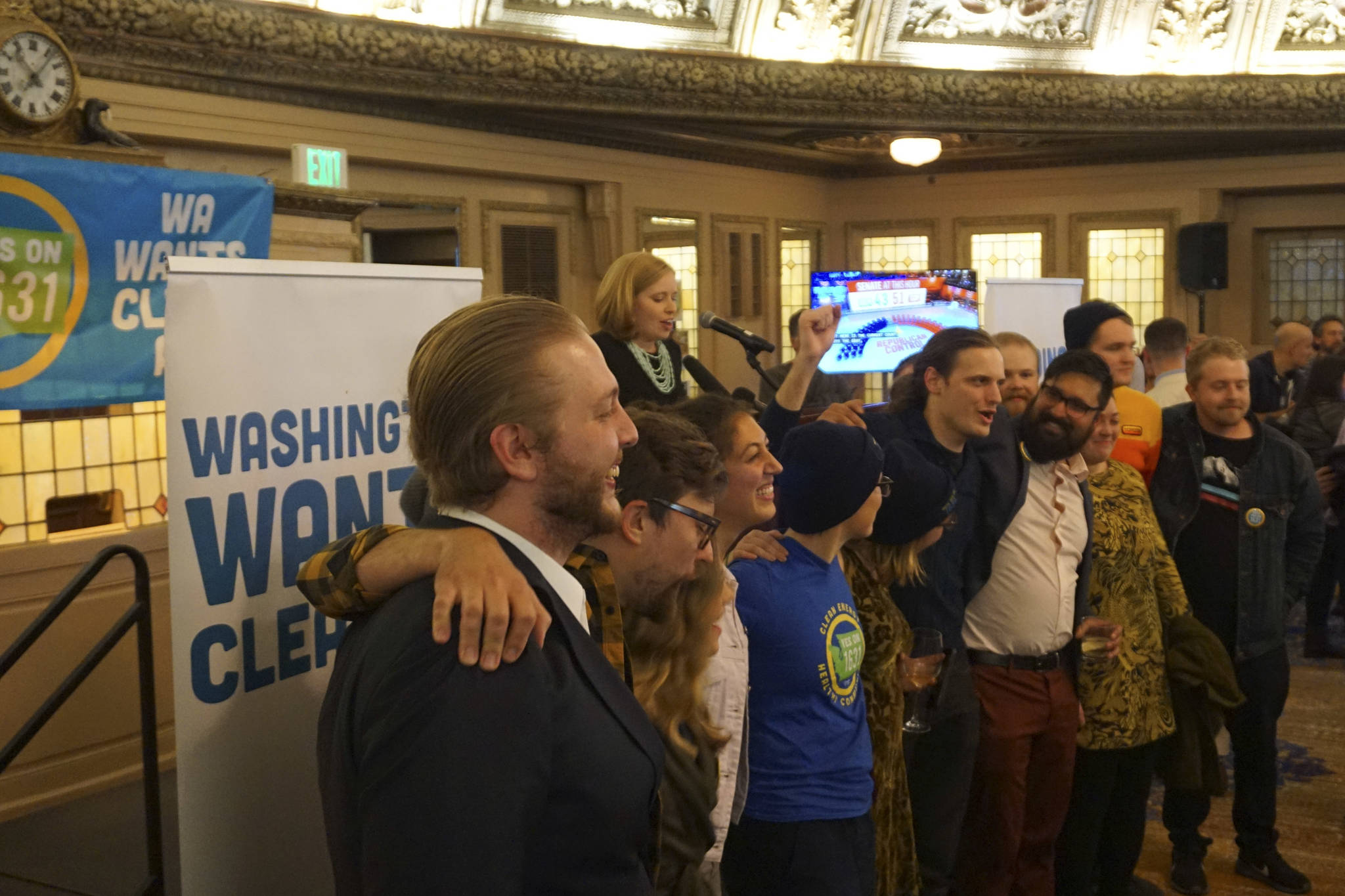On Tuesday evening, the banquet room of downtown Seattle’s Arctic Club bustled with climate action advocates awaiting the results of the nation’s first fee on carbon pollution. The historic ballot measure, known as Initiative 1631, would have raised money for environmental projects by imposing a fee on large greenhouse gas emitters — and would have served as a testing ground for the states’ role in paving a cleaner energy future.
But by 10 p.m. on election night, over 56 percent of the 1.9 million counted votes rejected that possibility. It was the second time that Washington voters had struck down a ballot initiative designed to reduce greenhouse emissions, following the 2016 rejection of carbon tax Initiative 732. Jefferson, King, and San Juan counties were the only counties that had approved the measure by the end of election night, according to Secretary of State Kim Wyman’s office.
“We are on the right side, no matter what the numbers say,” Tyson Johnson, vice president of the Quinault Indian Nation and Yes on 1631 board member, said Tuesday at the Arctic Club. “We’ve given a voice to a lot of our communities that have been disenfranchised, that have been crying out for help.”
Initiative 1631 would have levied a $15 per metric ton fee on carbon emissions beginning in January 2020, with a $2 increase each year adjusted for inflation. The fee would have continued to rise until the state reached its 2035 greenhouse gas reduction goal, at which time the fee would have been capped if it was on track to meet the state’s 2050 target of reducing emissions to 50 percent below 1990 levels.
Among the emitters that would have imposed fees include motor fuel licensees and power plants that generate electricity using fossil fuels. In return, 70 percent of the money would have gone toward clean energy programs that help low-income people or affected workers. Another 25 percent would have been used in clean water and forest investments; and the final portion would have helped communities particularly affected by climate change to prepare for and prevent the effects.
While a diverse group of over 600 organizations and businesses endorsed the Yes on 1631 campaign that raised a total of $15.5 million in contributions, according to the Clean Air Clean Energy Washington committee, it paled in comparison to the opposition campaign fueled by the oil industry that gained over double the funding.
Although the race was not called on Tuesday night because of the thousands of late return ballots, Washington voters in the Arctic Club accepted the projected defeat with solemn understanding. One organizer on stage encouraged the audience to high-five or embrace others in the room for their efforts on the I-1631 campaign.
Got Green Executive Director Jill Mangaliman told the crowd that the environmental justice organization — led by local people of color — was not deterred by the initiative’s failed passage. The organization will continue advocating for the communities most impacted by climate change, Mangaliman said: “We know that big oil can’t buy us.”
Johnson concurred that the failed initiative did not signal the end of community efforts to address greenhouse gas emissions.
“We have to continue to stand together, this coalition has to maintain our ties, and we have to continue this work,” Johnson said. “We are fighting for the future of our climate, as well as the ability for our future generations to continue to live and operate in a way that is loving, that is caring.”
mhellmann@seattleweekly.com








